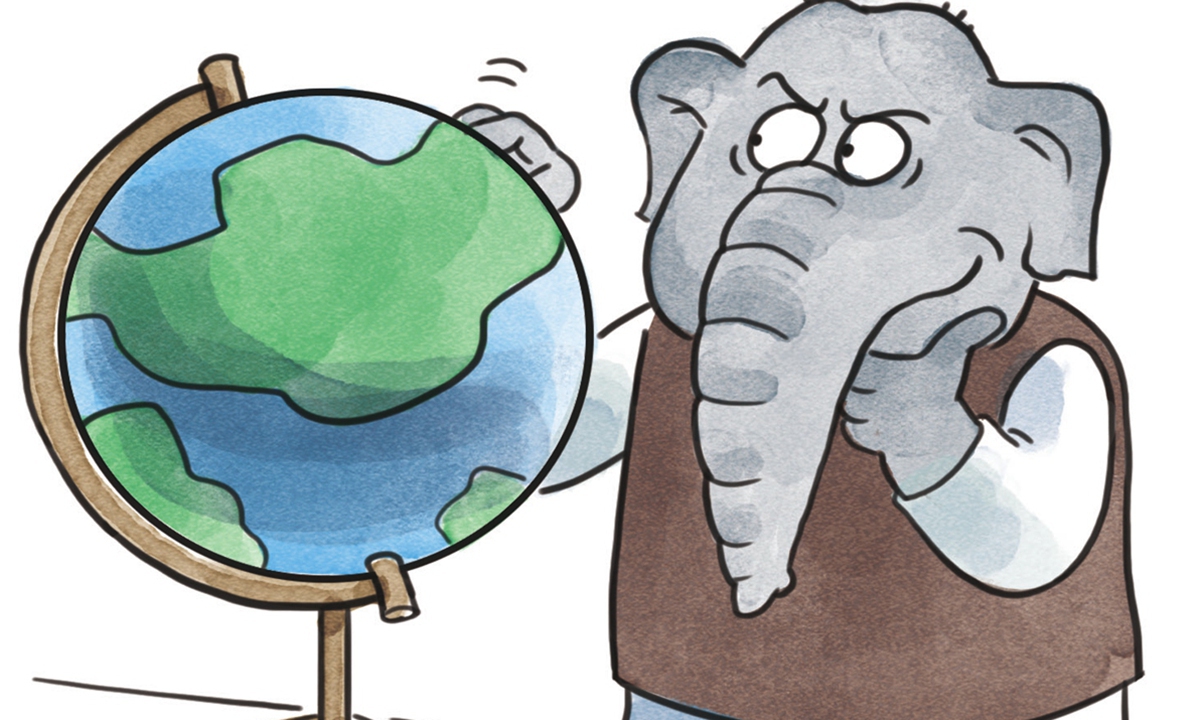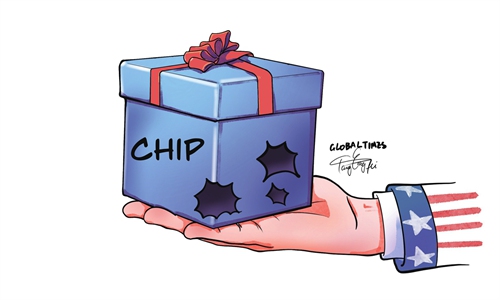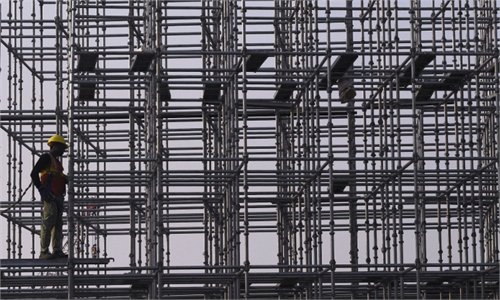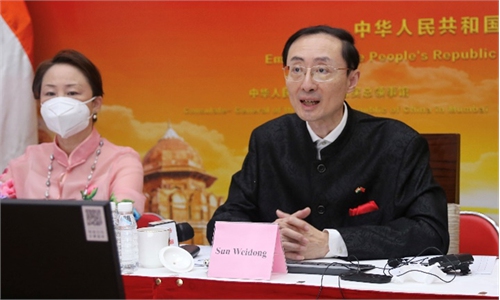
India Illustration: Liu Rui/GT
US Treasury Secretary Janet Yellen embarked on a trip to India on Tuesday, during which her schedule will include the participation of the US-India Economic and Financial Partnership dialogue in New Delhi and a meeting with Indian Finance Minister Nirmala Sitharaman, Reuters reported.
Yellen's visit came at a time when the Indian economy has outperformed others amid continuing global economic turmoil. India's economy is expected to grow 6.8 percent this year, in stark contrast to the 3.2 percent forecast for the world as a whole, according to data from the IMF.
Apparently, the rise of Indian manufacturing is starting to pay off and showing a strong momentum. Last week, Apple's contract manufacturer Pegatron began assembling iPhone 14 models in India, marking the second Apple supplier to produce the iPhone 14 in the South Asian country, Bloomberg reported.
Given India's economic potential, it is not surprising that the US wants to deepen economic ties with the country, but the problem is that the two countries' goals as it relates to their economic and trade relationship are actually at odds. Moreover, in stepping up engagement with India, the US' biggest target still appears to be China.
Take Yellen's India visit as an example. With a reported focus on the similarities of the world's two largest "democracies," Yellen is expected to discuss the topic of strengthening supply chains through "friend-shoring," a term used to describe diversifying supply chains away from China to US allies.
The rhetoric may be welcomed by some Indians, but it could also serve as a reminder to India that the importance the US has attached to the country may have more to do with geopolitics than India's economic strength. It is no secret that both the US and India are heavily dependent on China's supply chains, and the US' attempt to rope in allies like India to undercut China's industrial chain is clearly aimed at serving its own global strategy, not out of economic interests of others.
India will only harm its own interests if it follows the US' strategy to weaken its industrial and trade chains with China. Fundamentally speaking, despite the seemingly closer security and political ties between the US and India in recent years, Washington still views India more as a geopolitical pawn to contain China and implement its so-called Indo-Pacific strategy. The best proof of this is that the Biden administration has moved away from extending market access or striking new trade deal with India.
This is clearly not what India expects to get from "close ties" with the US. India has been asking the US to restore GSP (Generalised System of Preferences) benefits for its exporters, and has been pushing for a bilateral free trade deal with the US. Yet, both the former Trump administration and the Biden administration have appeared uninterested in such a deal.
Indeed, the limited progress and unresolved disputes on economic and trade issues between the two countries are evidence enough to show that their trade needs for each other are not on the same track, which is why it is difficult for US-India trade to develop smoothly.
Some may argue that the US is one of the few countries with which India has a trade surplus, which has been on the rise in recent years. However, given the fact that the US economy is turning inward, India needs to be careful that its growing surplus could prompt the US to build more protectionist barriers or even trade sanctions against India in the future. To put it more bluntly, India shouldn't buy what the US is selling during Yellen's trip.
Under such circumstances, in order to maintain its growth momentum, it is essential for India to improve its domestic environment for foreign investment by improving labor skill levels and upgrading its logistics and transportation systems. That, to a certain extent, could increase its bargaining power when it comes to trade talks with the US. Meanwhile, it is also necessary for India to diversify exports through more active participation in the Asia-Pacific industrial chain.



